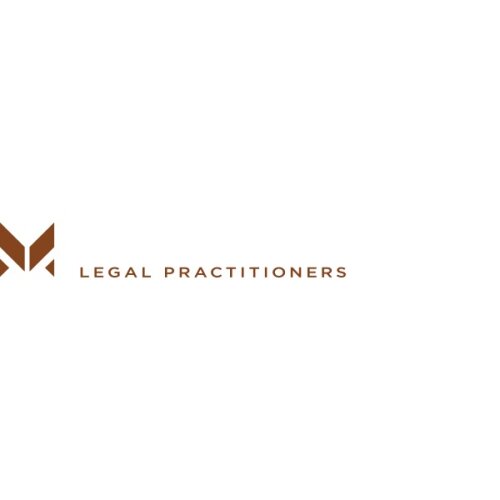Best Project Finance Lawyers in Zambia
Share your needs with us, get contacted by law firms.
Free. Takes 2 min.
Or refine your search by selecting a city:
List of the best lawyers in Zambia
About Project Finance Law in Zambia
Project finance in Zambia is a specialized area of law and finance concerned with the funding and development of major infrastructure and industrial projects. These can include power plants, mining operations, transport infrastructure, and large-scale manufacturing facilities. The distinguishing feature of project finance is that the financing is typically secured against the future cash flows generated by the project, rather than the assets or creditworthiness of the project sponsors. This approach allows both domestic and foreign investors to participate in projects that contribute significantly to Zambia's economic growth. Zambian law provides a framework for structuring, securing, and documenting such complex financial deals to ensure they are legally enforceable.
Why You May Need a Lawyer
A lawyer specializing in project finance can provide essential legal support in a variety of scenarios, including:
- Drafting and negotiating complex project agreements, such as loan agreements, concession contracts, and construction contracts.
- Advising on risk allocation, security arrangements, and legal compliance with Zambian laws and regulations.
- Structuring tax-efficient and legally robust finance arrangements.
- Conducting legal due diligence on project assets, land rights, and regulatory permits.
- Resolving disputes or renegotiating agreements if circumstances change during the project lifecycle.
- Facilitating compliance with international lending standards and lender requirements in cross-border projects.
- Assisting with obtaining licenses and approvals from relevant Zambian governmental authorities.
Given the large financial stakes involved and the multi-faceted nature of such projects, competent legal advice helps minimize risk and ensures contract enforceability.
Local Laws Overview
Project finance transactions in Zambia are guided by a mix of local laws, regulations, and international best practices. Key aspects include:
- Companies Law: Most projects are structured as Special Purpose Vehicles (SPVs) registered under the Companies Act, 2017.
- Securities: The Movable Property (Security Interest) Act, 2016, allows lenders to take security over both movable and immovable assets.
- Land Law: All land in Zambia is vested in the President and allocated as leasehold, making land due diligence and lease negotiations crucial.
- Environmental Laws: The Environmental Management Act, 2011, and associated regulations require environmental impact assessments and approvals for most major projects.
- Public-Private Partnerships (PPPs): Governed by the Public-Private Partnership Act, 2009, this allows the private sector to partner with the government for infrastructure projects.
- Taxation: Project structures must comply with the Income Tax Act and Value-Added Tax Act, influencing project profitability and financing arrangements.
- Foreign Exchange and Investment: The Investment Act and Bank of Zambia regulations affect the repatriation of funds, foreign currency borrowing, and registration of foreign investments.
- Licensing and Permits: Various sector-specific laws apply, including those regulating energy, mining, and transportation.
An experienced project finance lawyer can help navigate these overlapping legal requirements.
Frequently Asked Questions
What is project finance?
Project finance is a method of funding in which the project itself secures financing, with lenders relying primarily on the future income and assets of the project for repayment, rather than the credit of project sponsors.
What types of projects qualify for project finance in Zambia?
Typically, large-scale infrastructure, mining, energy, manufacturing, and transport projects qualify. The projects should be capable of generating predictable cash flows to service the debt.
Do I need government approval for project finance deals?
Depending on the sector and type of project, approvals may be required from various governmental agencies, especially for environmental compliance, land acquisition, or when entering into public-private partnerships.
Can foreign investors participate in project finance in Zambia?
Yes. Zambia encourages foreign investment in strategic sectors. However, foreign investors must comply with investment, tax, and exchange control regulations.
What security can be granted to lenders in Zambia?
Lenders can receive security interests over movable and immovable property, shares, receivables, and project-specific assets. These security interests are recorded according to Zambian law.
What is a Special Purpose Vehicle (SPV) and why is it important?
An SPV is a legal entity created solely for the project. It helps isolate project risk and ensures that project assets and liabilities are kept separate from sponsors' other business activities.
What are the common risks in project finance?
Common risks include construction risk, operational risk, market or revenue risk, regulatory risk, and political risk. Effective legal structuring can help allocate and mitigate these risks.
How is land ownership handled in Zambian projects?
All land in Zambia is held under leasehold from the state for up to 99 years. Lease agreements, title registration, and due diligence are critical parts of project development.
Is it necessary to conduct an environmental impact assessment?
Most significant projects require an environmental impact assessment, and obtaining environmental approval from the Zambia Environmental Management Agency is a legal prerequisite.
How long does it typically take to close a project finance deal in Zambia?
The timeline can range from several months to over a year, depending on the project's size, regulatory requirements, stakeholder involvement, and negotiation complexity.
Additional Resources
If you need more information or support about project finance in Zambia, consider reaching out to the following:
- Zambia Development Agency - Offers guidance on investment and project development in Zambia.
- Bank of Zambia - Regulates monetary and financial matters including foreign exchange transactions.
- Ministry of Finance and National Planning - Handles fiscal policy, public-private partnerships, and investment incentives.
- Zambia Environmental Management Agency (ZEMA) - Regulates environmental compliance and approvals.
- Zambia Public-Private Partnerships Unit - Supports PPP project initiation and coordination.
- Law Association of Zambia - Provides directories of qualified lawyers and law firms.
Next Steps
If you are considering embarking on a large project or investing in project finance in Zambia, here is how you can proceed:
- Begin by outlining your project proposal and identifying key objectives and stakeholders.
- Engage a qualified Zambian lawyer with expertise in project finance as early as possible. The lawyer can guide you through regulatory, contractual, and risk management matters.
- Prepare to conduct thorough due diligence, especially regarding land, permits, and regulatory compliance.
- Consult with relevant government agencies listed above to understand the sector-specific requirements that may apply to your project.
- Collaborate with financial advisers to structure the most effective financing arrangements for your specific needs.
- Remain proactive in addressing legal, financial, and environmental requirements to help ensure the success and sustainability of your project.
Proper legal guidance at the outset can help avoid costly delays and ensure your project is both compliant and financially secure.
Lawzana helps you find the best lawyers and law firms in Zambia through a curated and pre-screened list of qualified legal professionals. Our platform offers rankings and detailed profiles of attorneys and law firms, allowing you to compare based on practice areas, including Project Finance, experience, and client feedback.
Each profile includes a description of the firm's areas of practice, client reviews, team members and partners, year of establishment, spoken languages, office locations, contact information, social media presence, and any published articles or resources. Most firms on our platform speak English and are experienced in both local and international legal matters.
Get a quote from top-rated law firms in Zambia — quickly, securely, and without unnecessary hassle.
Disclaimer:
The information provided on this page is for general informational purposes only and does not constitute legal advice. While we strive to ensure the accuracy and relevance of the content, legal information may change over time, and interpretations of the law can vary. You should always consult with a qualified legal professional for advice specific to your situation.
We disclaim all liability for actions taken or not taken based on the content of this page. If you believe any information is incorrect or outdated, please contact us, and we will review and update it where appropriate.
Browse project finance law firms by city in Zambia
Refine your search by selecting a city.

















